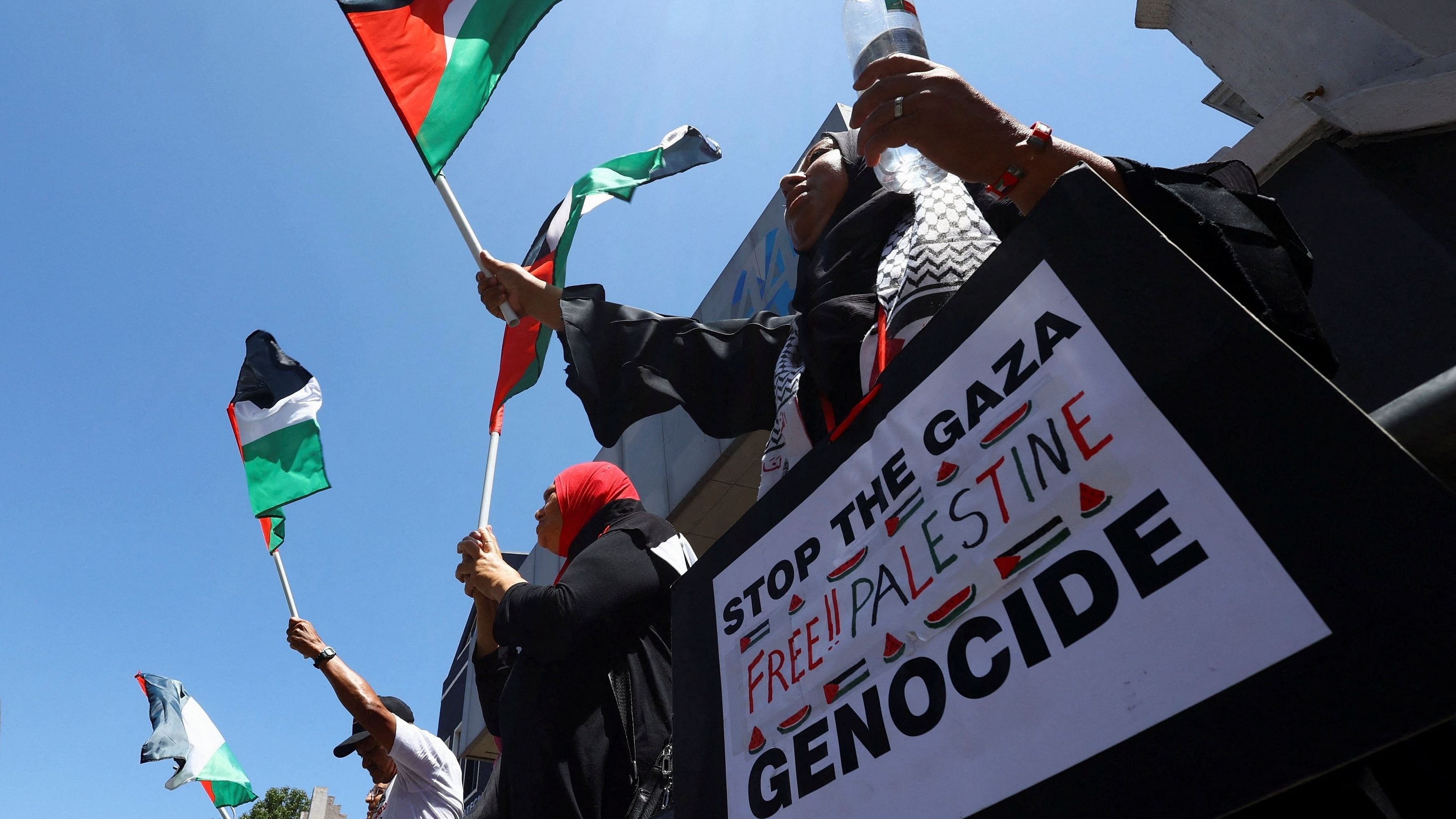
People hold placards and Palestinian flags outside the Claremont mosque to express support for the people of Palestine, ahead of a ruling at the World Court on urgent measures on a case in which Israel is accused of genocide, in Cape Town, South Africa, January 26, 2024.
Credit: Reuters Photo
The United Nations’ highest court said on Friday that Israel must take action to prevent acts of genocide by its forces in the Gaza Strip, adding to the international pressure on Prime Minister Benjamin Netanyahu to reduce death and destruction in the battered Palestinian enclave.
But the court did not rule on whether Israel was committing genocide, and it did not call on Israel to stop its military campaign to crush Hamas, as South Africa, which brought the case, had requested.
Although the ruling had elements that each side could embrace, the court allowed the case charging Israel with genocide to proceed, which will probably keep the country under international scrutiny for years to come.
“The court is acutely aware of the extent of the human tragedy that is unfolding in the region, and is deeply concerned about the continuing loss of life and human suffering,” Joan Donoghue, president of the International Court of Justice in The Hague, said as she announced the interim ruling. The decision also ordered the delivery of more humanitarian aid to Palestinians, and called for the release of hostages held by armed groups in Gaza.
The South Africans who argued the case this month have equated the oppression they faced under apartheid with the plight of Palestinians.
The genocide accusation is acutely sensitive for Israel, which was founded in 1948 in the aftermath of the Holocaust. Many Israelis argue that it is Hamas that should face charges of genocide after its attack on Oct. 7, when about 1,200 people were killed in Israel and about 240 were taken captive, according to Israeli officials.
“The very notion that Israel is perpetrating genocide is not only false, it is outrageous, and the court’s willingness to discuss it is a mark of shame that will last for generations,” Netanyahu said in a statement Friday.
For many Palestinians, the court decision was a rare moment of reckoning for Israel, whose campaign has been defended by the United States and other close allies. More than 25,000 people in Gaza have been killed since Israel’s offensive began, nearly 2 million have been displaced, and half of the population is at risk of starvation, according to the territory’s health officials and the United Nations.